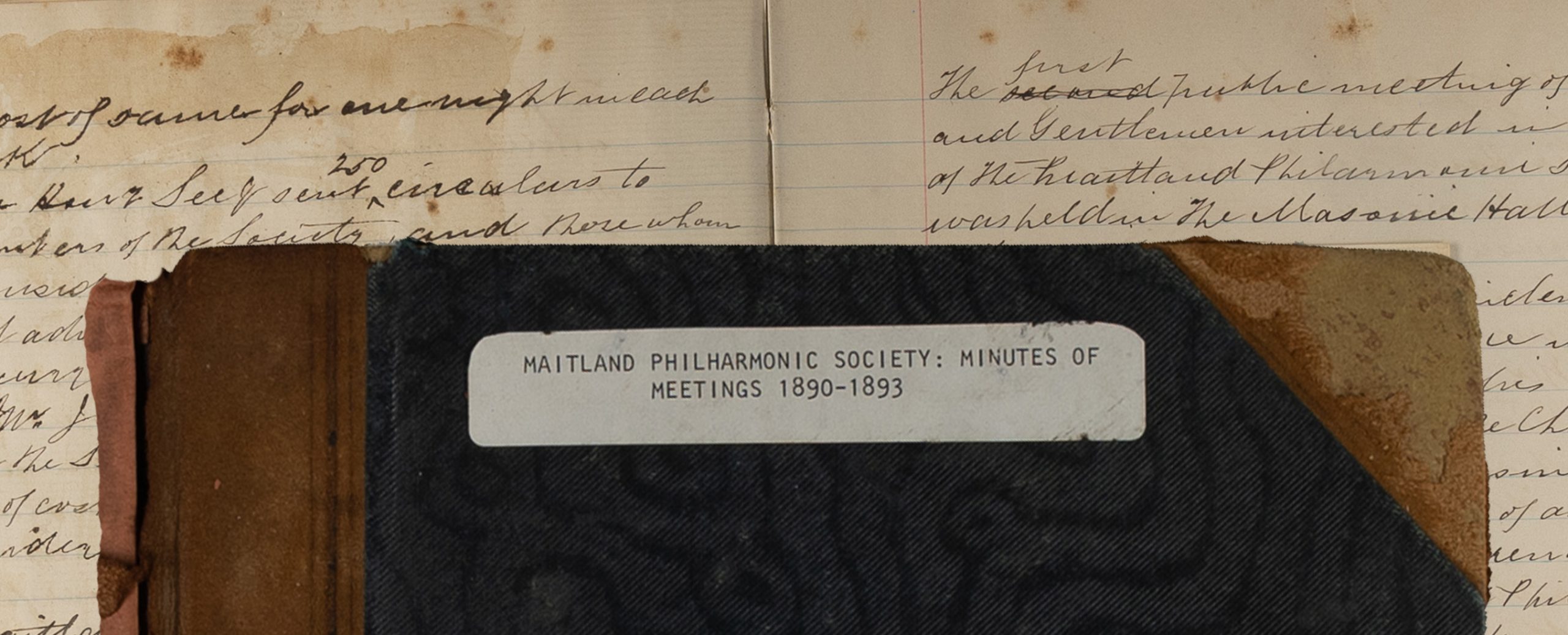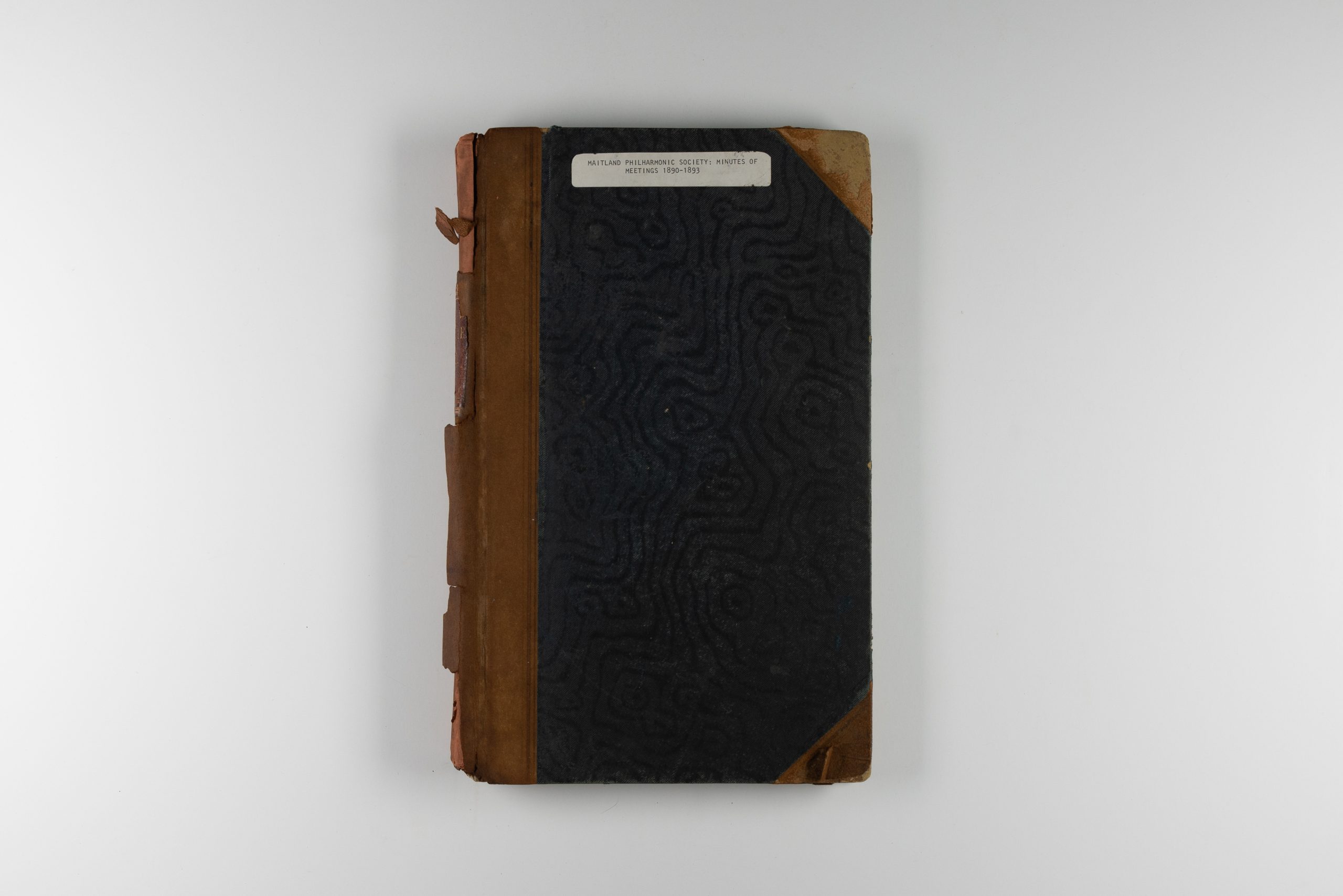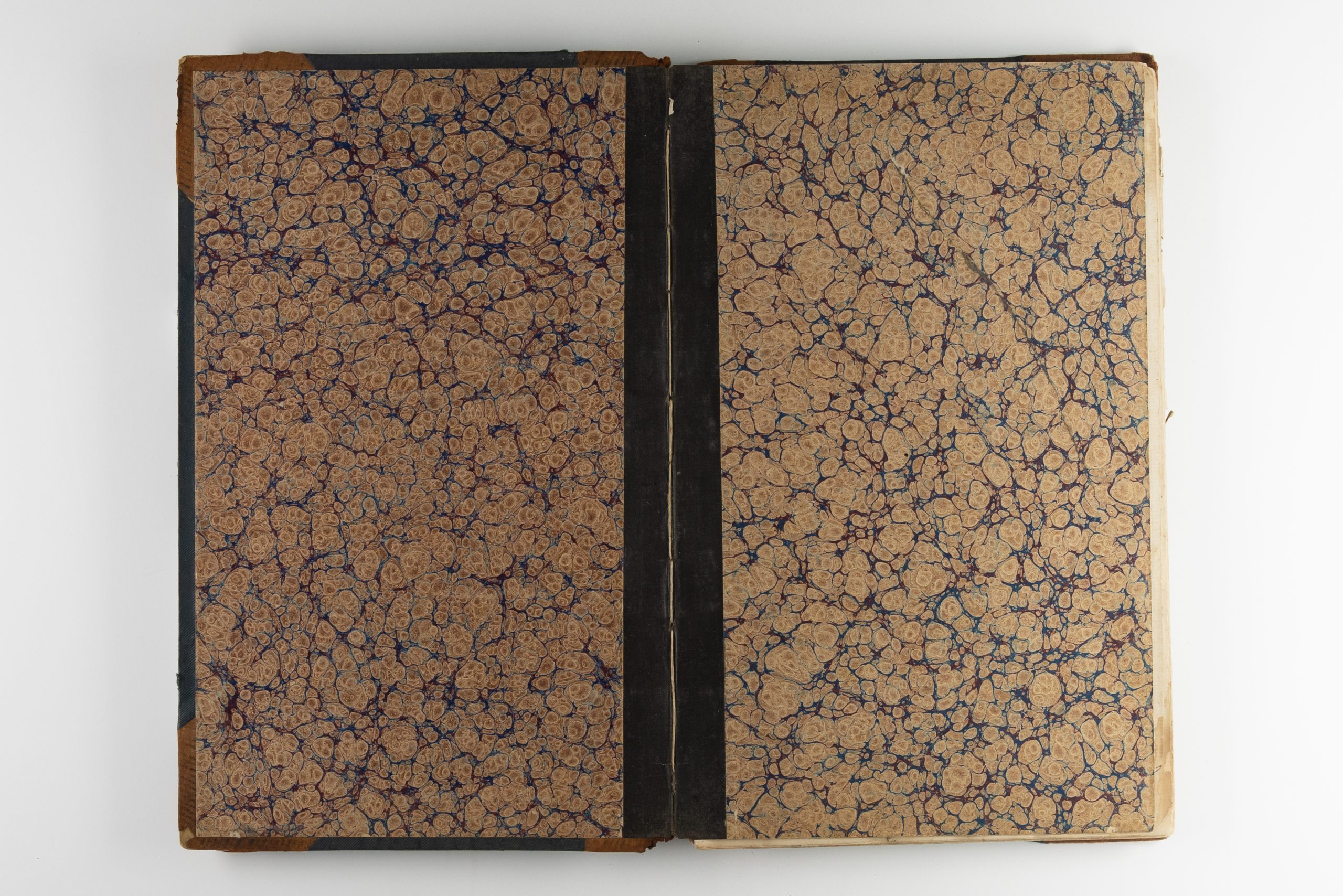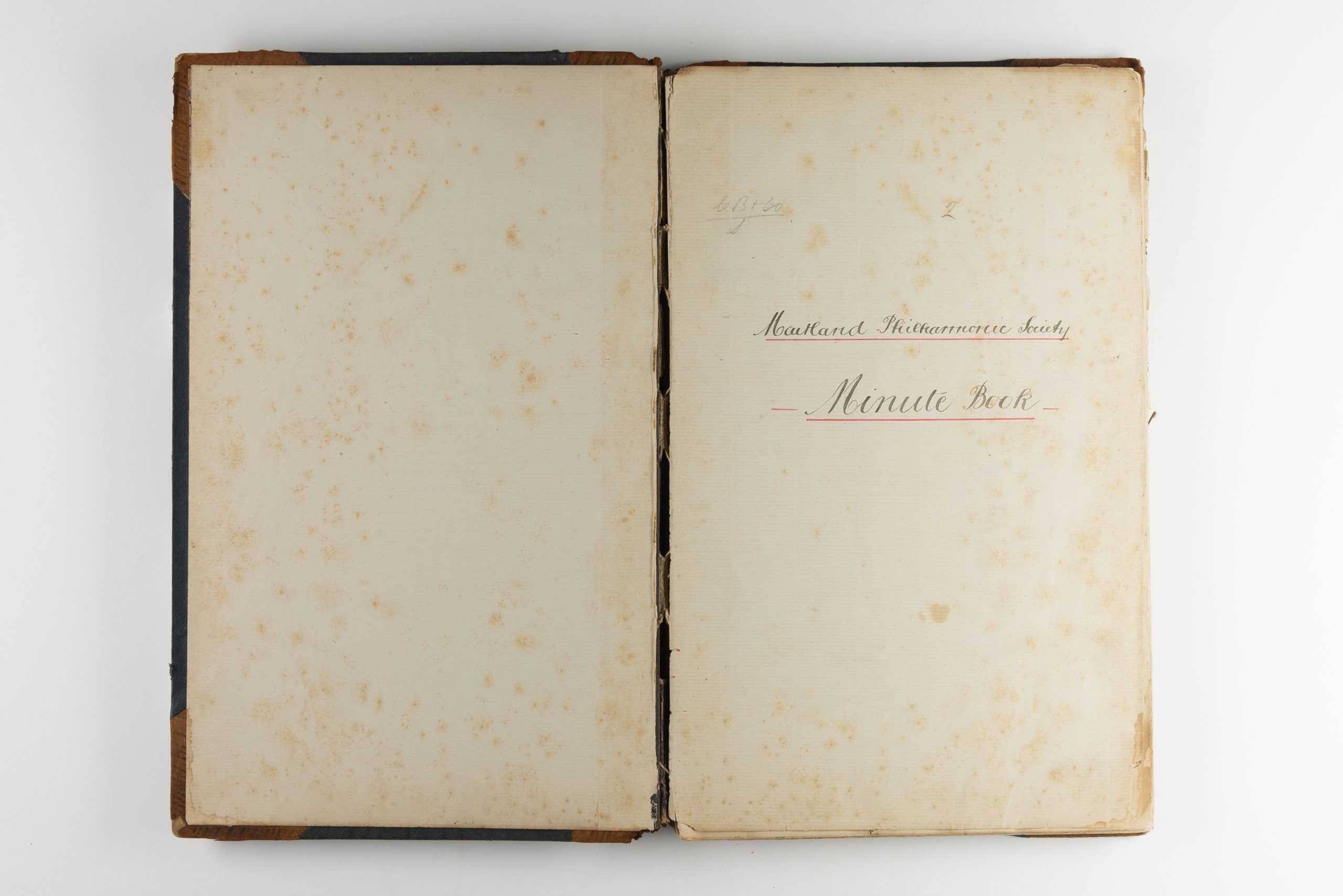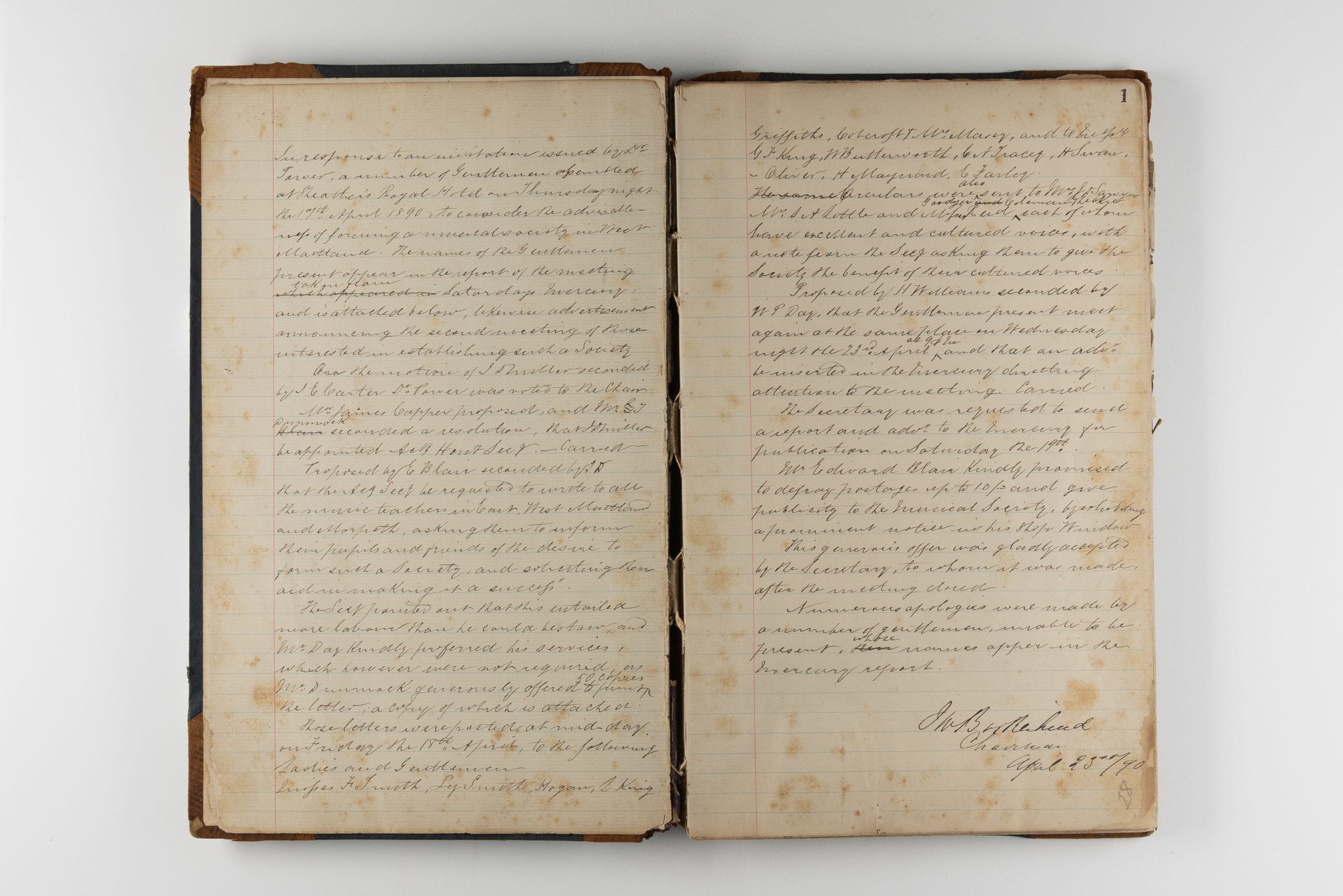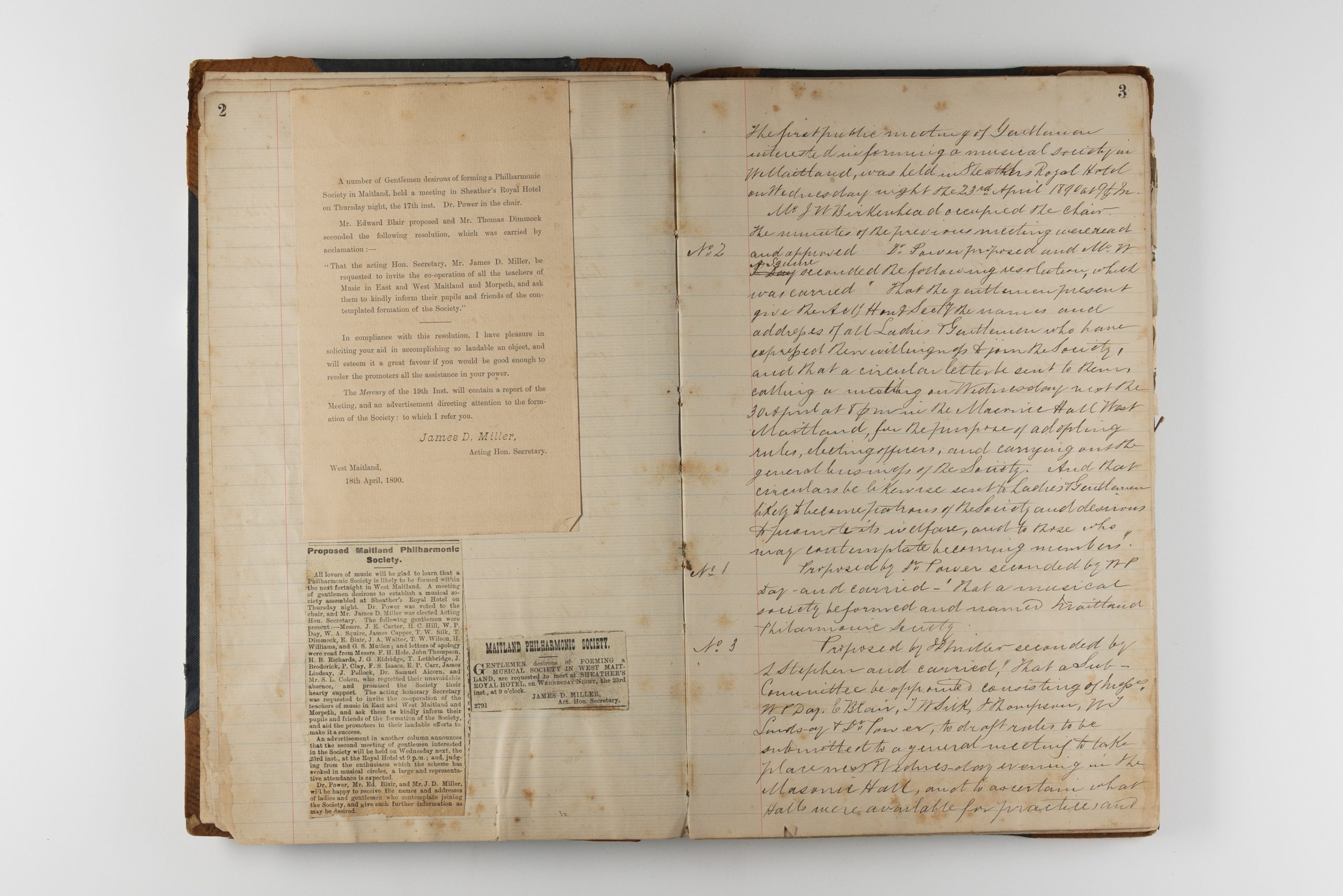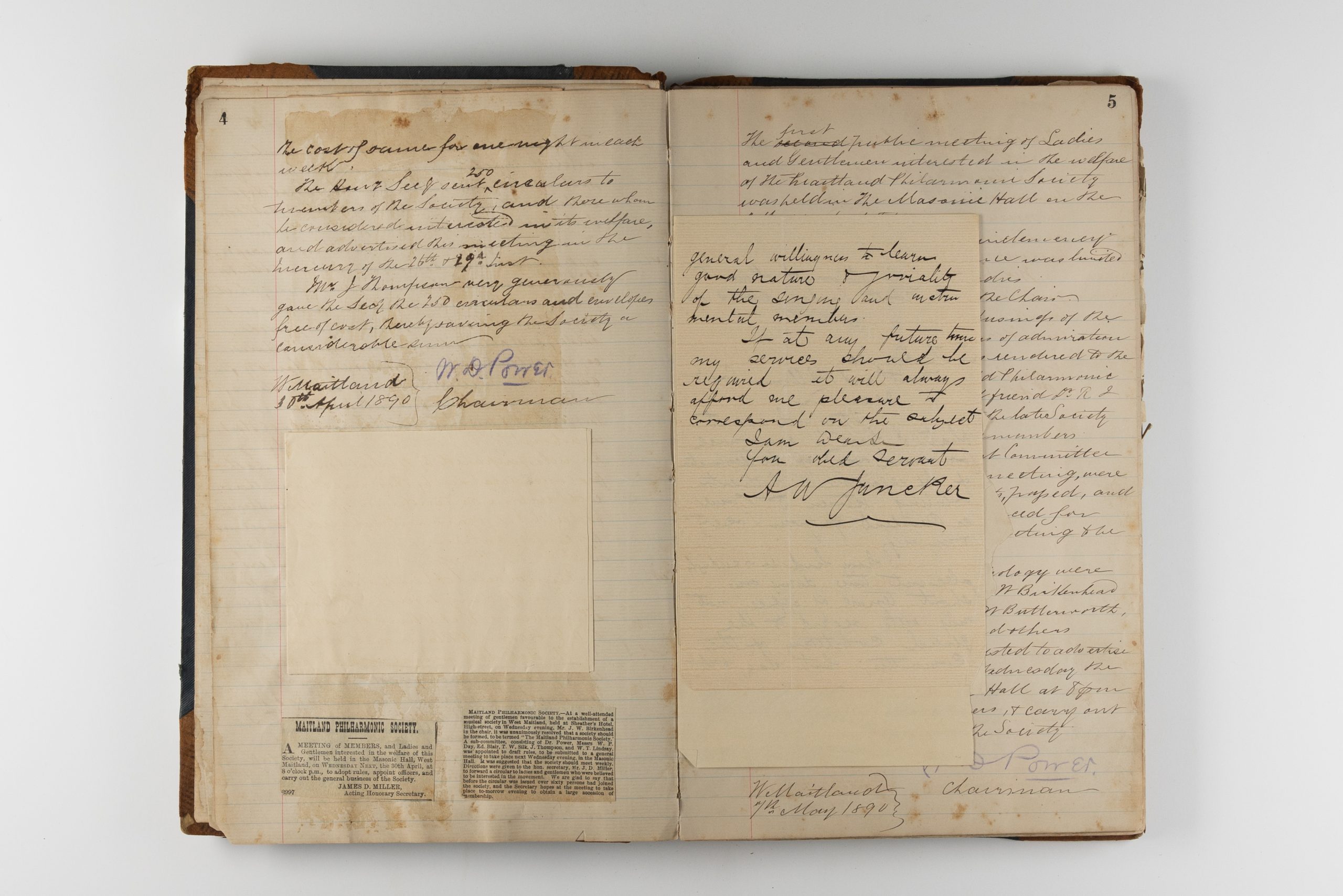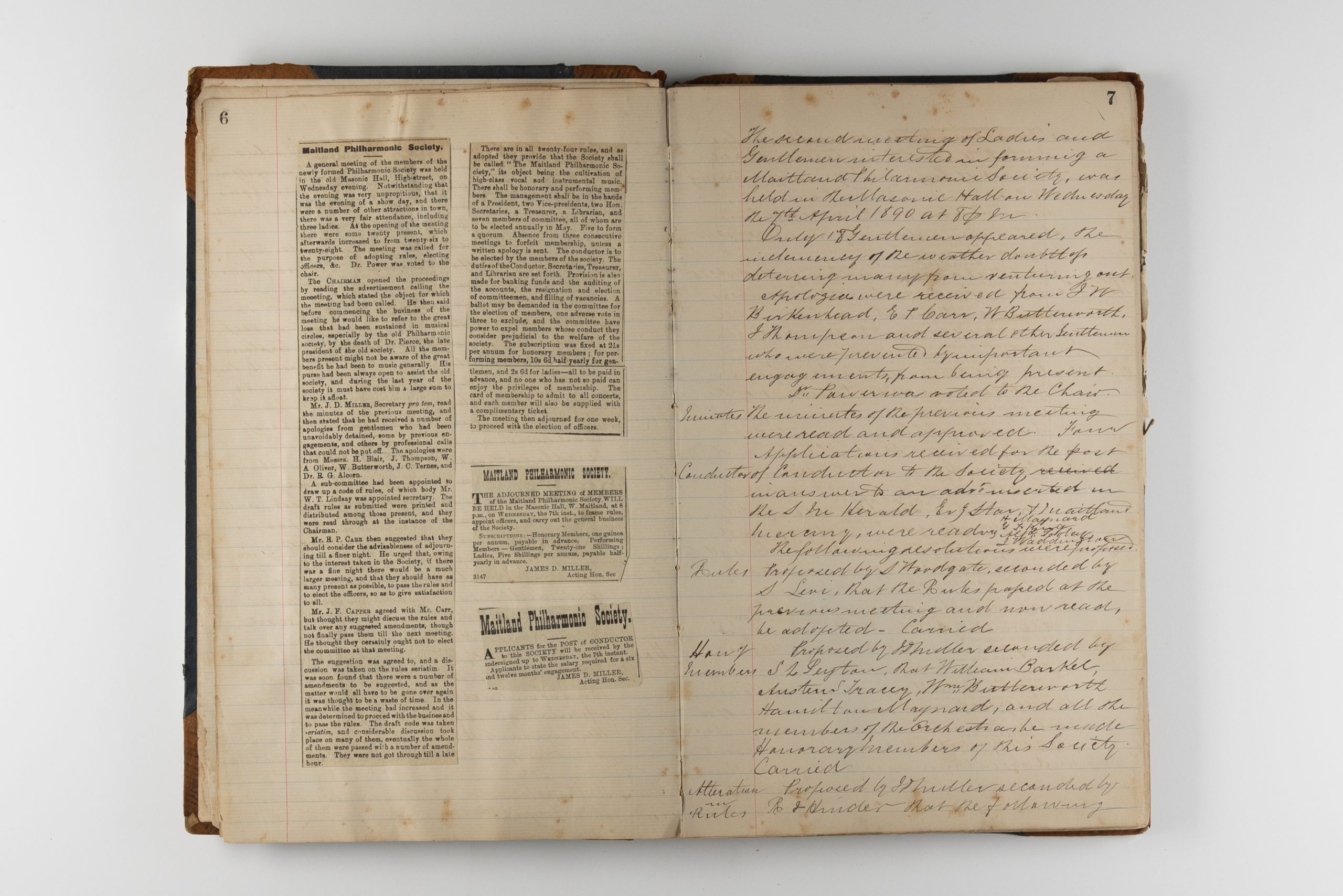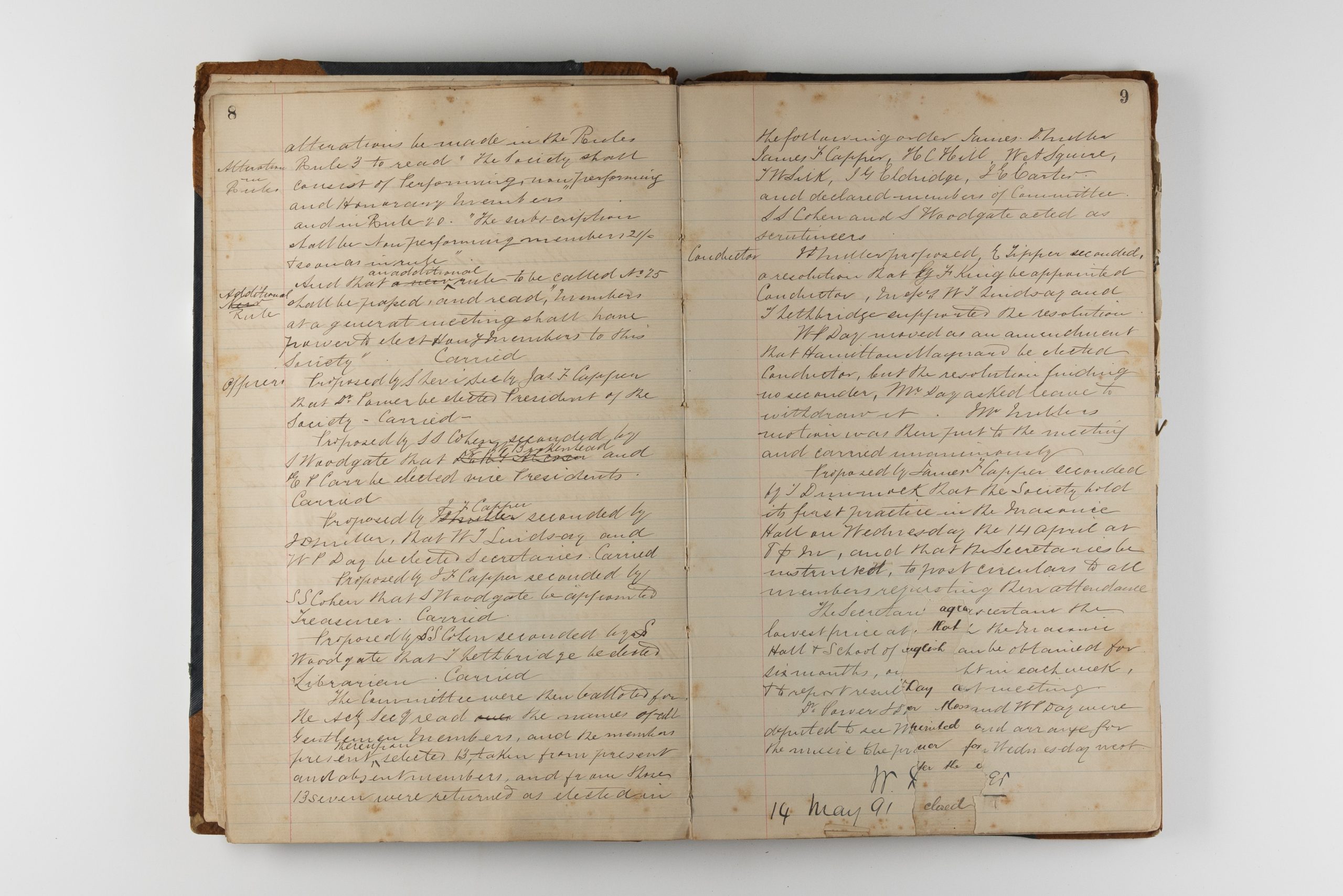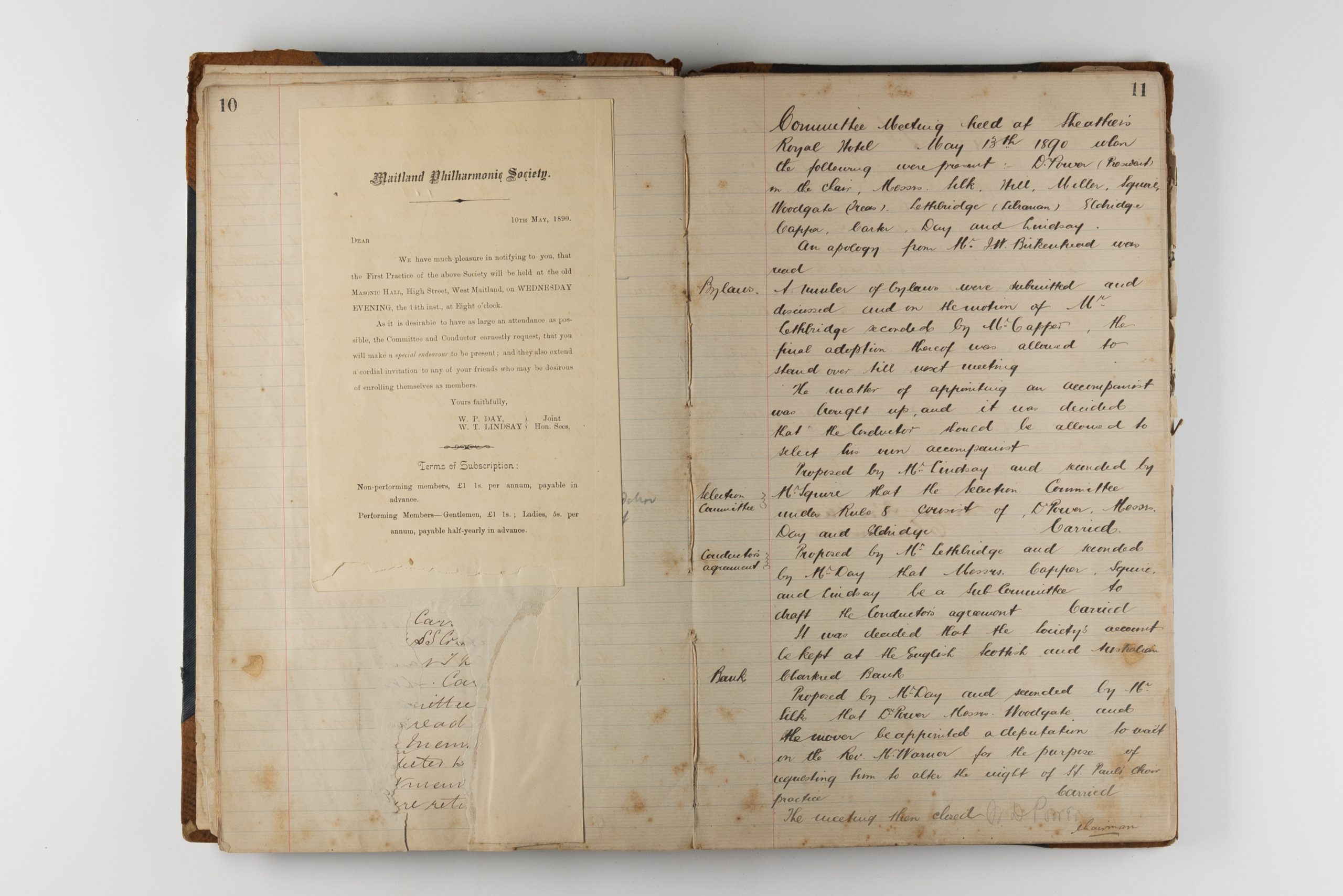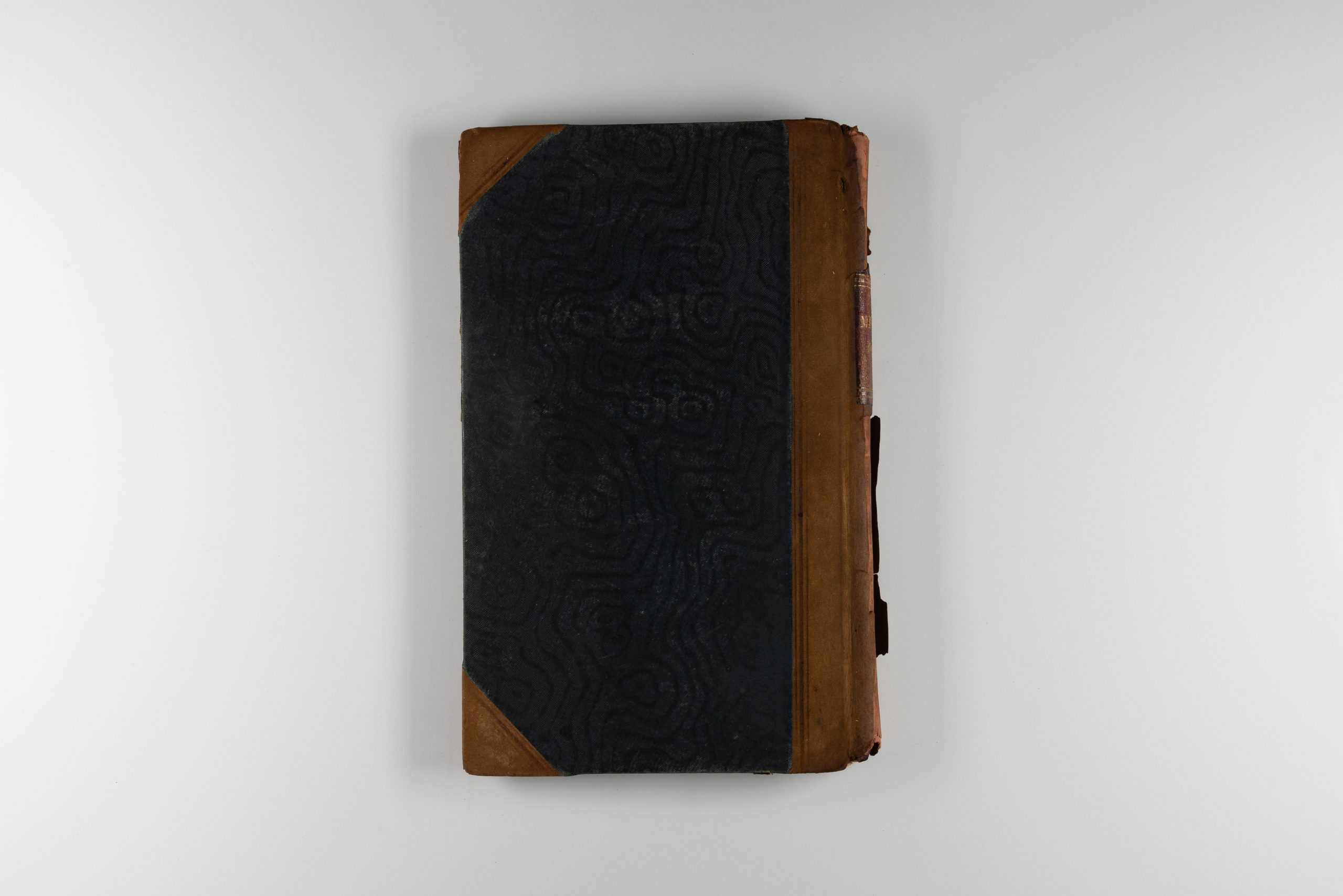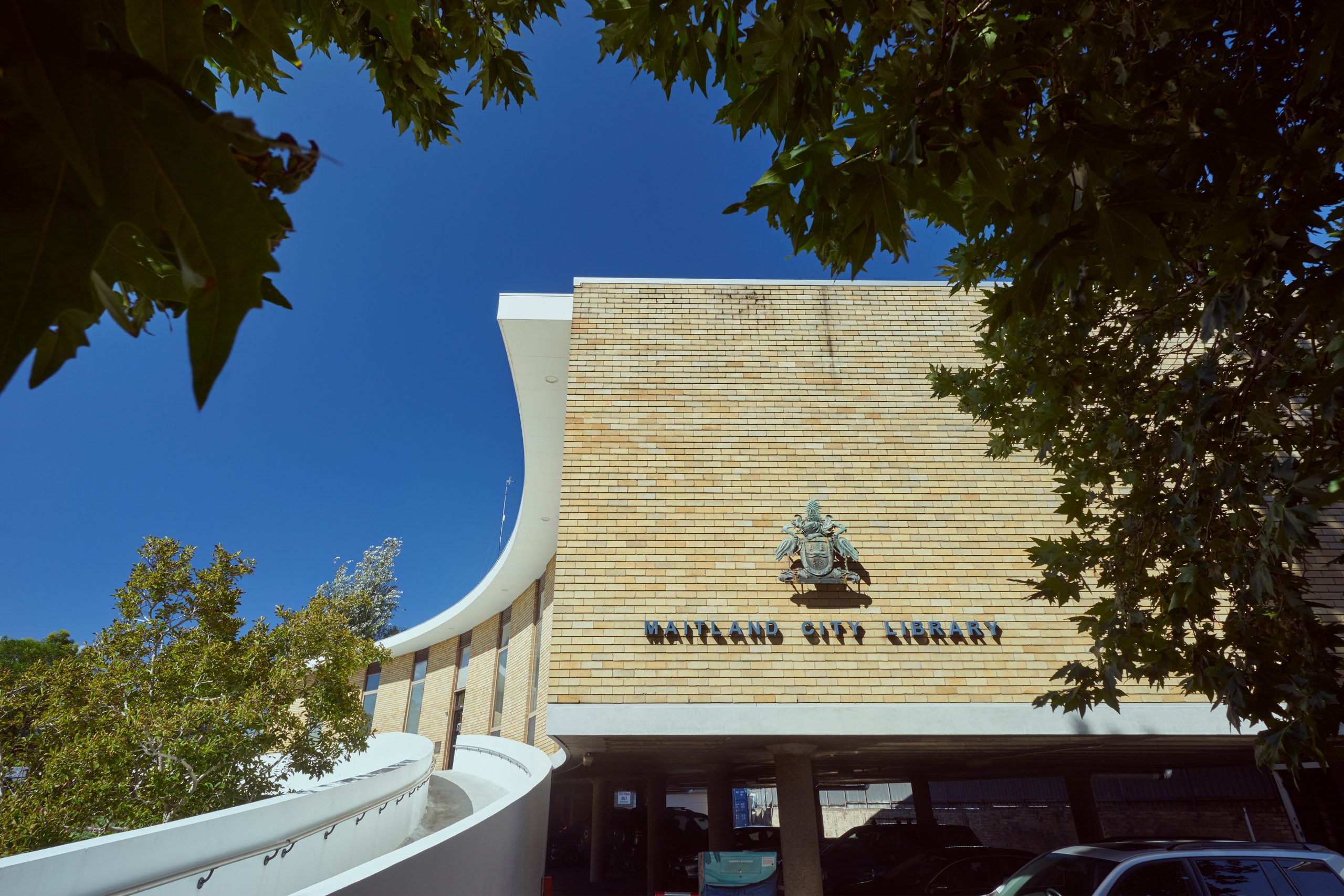Third Time Unlucky
Documenting the Rise and Fall of Maitland’s Philharmonic Society
Irishman Dr William Dudley Power (1853-1912) eagerly opened the Maitland Mercury newspaper, fresh off the printing press on 19 April 1890. The large pages rustled as he flipped through and scanned the headlines. On pages two and four he found the columns he was looking for, and held his scissors at the ready to cut them out.
Power was the proud new Chairman of the Maitland Philharmonic Society which was reforming that week, which the Mercury had announced that day. The clippings were later pasted onto page two of this leather-bound ledger, the society’s new minute book.
This was not the first time that musical Maitlanders had tried to get the vocal society up and running – in fact, it was the third attempt. First established in 1865, members had participated in rehearsals and concerts. But their performances simply didn’t attract the crowds and the society folded after one year. In 1881, the society made a comeback, and several successful concerts were staged. However, history repeated itself in 1886 as local audiences stopped showing once again.
From 1890, the secretary of the reformed society scribbled in this ledger. He recorded the minutes, detailing motions discussed and passed, while also noting the names of those in attendance, rules and regulations, and details of events and concerts. In saying that, it eventually became more of a scrapbook. Handwritten notes were interspersed with newspaper clippings from the Maitland Mercury, notices, programmes, and concert flyers.
By 1893, when the final pages of the ledger were filled, the society’s concerts were poorly attended again, and the society dispersed, for the final time. But it was not the end for community musical organisations in Maitland. In the twentieth century, the Maitland Musical and Operatic Society and other successful groups were formed, establishing a strong tradition of performing arts in the region.


